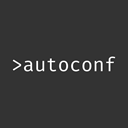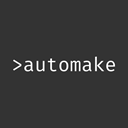Unlocking Efficiency: The Best tup Alternatives for Your Build System Needs
Tup is a powerful, file-based build system designed for Linux, OSX, and Windows, known for its ability to process file changes and directed acyclic graphs (DAGs) with minimal overhead. Its intelligent algorithms ensure that only necessary tasks are performed, allowing developers to focus on their projects rather than cumbersome build processes. However, depending on specific project requirements, team familiarity, or desired features, exploring a tup alternative can be highly beneficial. This article delves into several top-tier build system alternatives that offer diverse approaches to managing your software compilation.
Top tup Alternatives
While tup excels at optimizing build times, other build systems provide different strengths, from extensive cross-platform support and C++/C language focus to Python-based extensibility and integration with specific development environments. Let's explore some of the most compelling alternatives that could be a perfect fit for your next project.

CMake
CMake is a robust family of tools for building, testing, and packaging software. It uses simple, platform- and compiler-independent configuration files, making it an excellent tup alternative for projects requiring broad compatibility across Mac, Windows, Linux, and Haiku. CMake offers strong C++ and C support and is famously cross-platform.

GNU Make
GNU Make is a classic and widely used tool that controls the generation of executables and other non-source files from a program's source files. As a free and open-source tool available on Mac, Windows, Linux, BSD, and Cygwin, GNU Make is a venerable tup alternative, particularly for those who prefer a traditional and highly flexible approach to build automation.

SCons
SCons is an open-source software construction tool often considered a next-generation build tool and an improved, cross-platform substitute for GNU Make. It offers a more modern and Python-based approach to build automation, running on Mac, Windows, and Linux, making it a powerful and flexible tup alternative for many projects.

Premake
Premake provides a powerfully simple build configuration, allowing you to describe your software project once with its easy-to-read syntax and build it everywhere. It generates project files for various IDEs and build systems, is free and open-source, and supports Mac, Windows, and Linux. Its cross-platform and portable features make it an excellent tup alternative for projects needing broad environment compatibility.

Ant
Apache Ant is an open-source, Java-based build tool that uses XML files to describe, structure, and control the build process. While tup focuses on file-level dependencies, Ant excels in Java project builds, with support for Mac, Windows, and Linux. For Java-centric development, Ant serves as a robust and well-established tup alternative.

qmake
qmake, a tool from The Qt Company, simplifies the build process for development projects across different platforms by automating Makefile generation. As a free and open-source tool for Mac, Windows, and Linux, qmake is an ideal tup alternative for projects primarily using the Qt framework, providing seamless integration and cross-platform capabilities.

Autoconf
Autoconf generates shell scripts to automatically configure source code packages for different systems. It's a free and open-source tool primarily used on Linux. While tup focuses on dependency tracking, Autoconf addresses portability by adapting software to various Unix-like systems, making it a key component in many open-source projects and a valuable tup alternative in specific contexts.

waf
Waf is a Python-based framework for configuring, compiling, and installing applications. It is free, open-source, and highly portable, supporting Mac, Windows, Linux, Xcode, Eclipse, and Microsoft Visual Studio. Waf's extensibility through Python and its cross-platform support make it a powerful and flexible tup alternative for diverse development environments.

Automake
Automake automatically generates Makefile.in files that comply with the GNU Coding Standards. It's a free and open-source tool predominantly used on Linux. When paired with Autoconf, Automake provides a robust system for managing complex projects and can serve as a suitable tup alternative for those deeply embedded in the GNU build system ecosystem.
Choosing the right build system depends heavily on your project's specific needs, your team's familiarity with certain tools, and the target platforms. Each of these tup alternatives brings unique strengths to the table, from robust cross-platform compatibility to specialized language support or highly customizable configurations. Explore these options to find the perfect fit that enhances your development workflow and build efficiency.